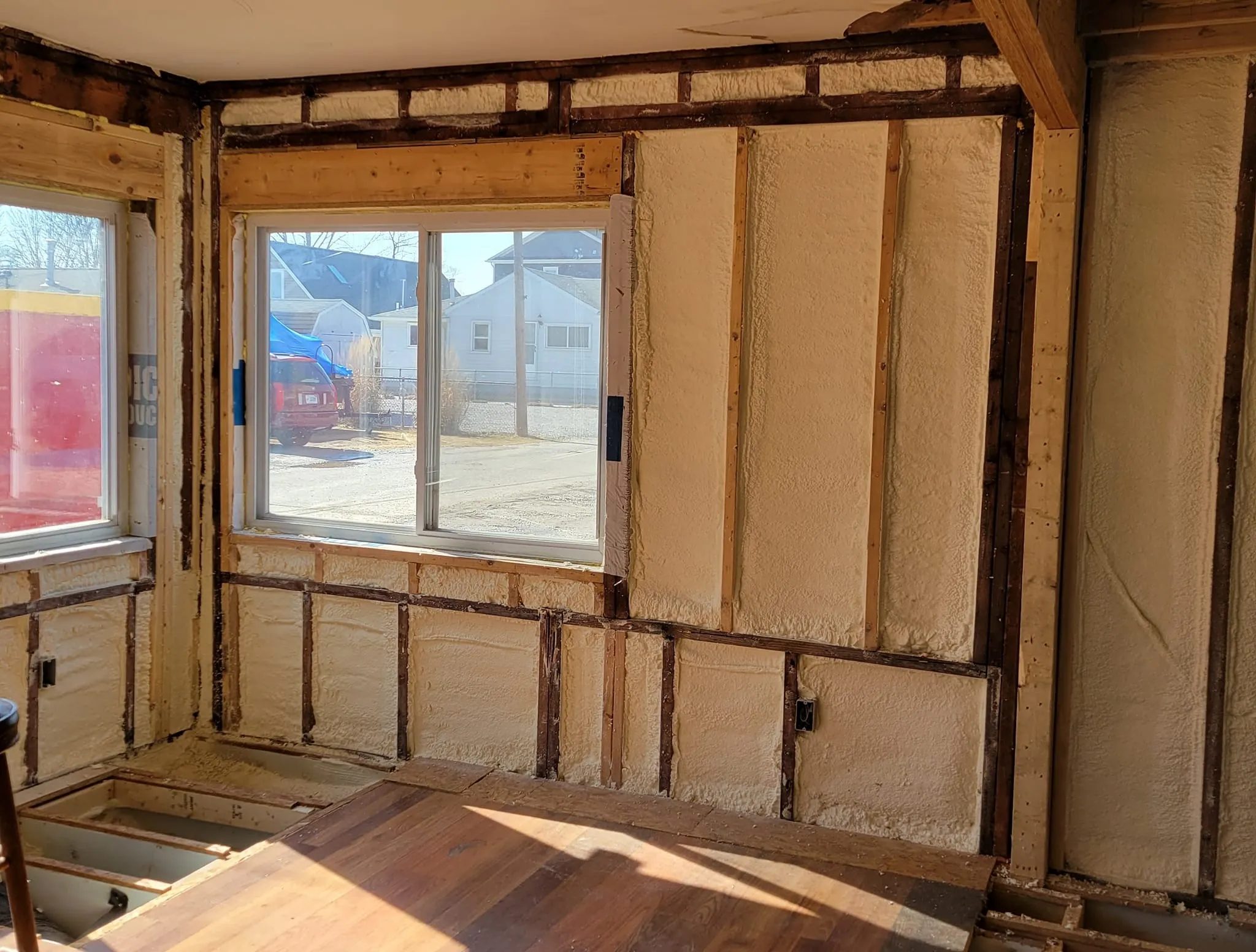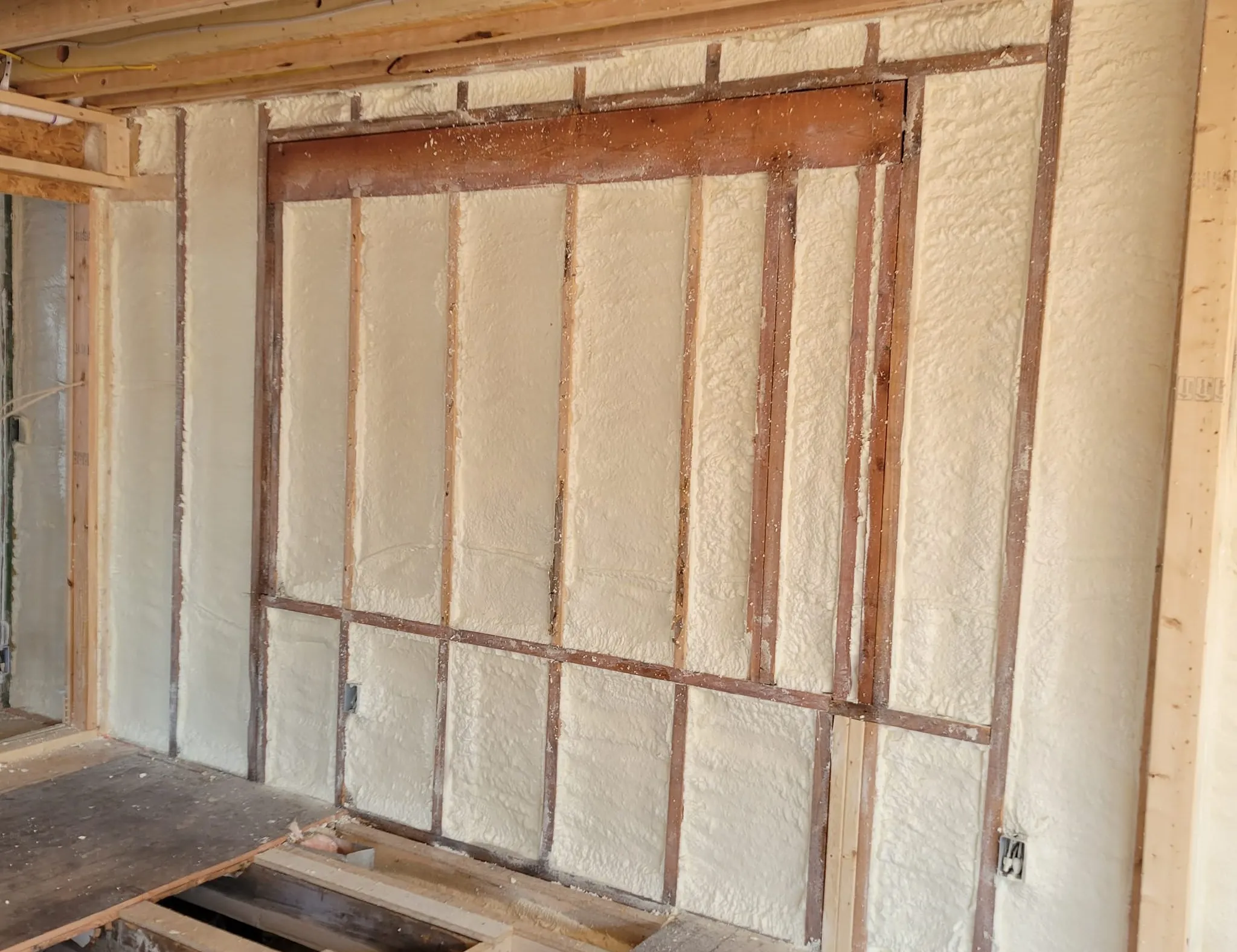
Professional spray foam insulation installation delivers superior thermal performance, air sealing capabilities, and long-term energy savings that DIY approaches cannot match. Expert contractors possess specialized equipment, technical knowledge, and safety protocols essential for achieving optimal results in residential and commercial applications.
Macomb County’s climate demands precise insulation strategies to handle temperature fluctuations ranging from sub-zero winters to humid summers. Professional installers understand local building codes, moisture management requirements, and application techniques that maximize performance while preventing costly installation errors. This expertise translates directly into reduced energy bills, improved indoor comfort, and enhanced property value.
Spray foam insulation outperforms traditional materials through its unique expanding properties and superior R-value per inch. Two primary types serve different applications: open-cell foam provides excellent sound dampening with an R-value of 3.5-4.0 per inch, while closed-cell foam delivers maximum thermal resistance at R-6.0-7.0 per inch plus structural reinforcement.
The installation process requires precise temperature control, proper mixing ratios, and uniform application thickness. Professional contractors monitor ambient conditions, substrate preparation, and curing parameters to ensure optimal adhesion and performance. These technical requirements exceed typical homeowner capabilities and directly impact long-term effectiveness.
Bonus Tip: Temperature and humidity conditions during installation significantly affect spray foam performance. Professional installers use specialized instruments to monitor these conditions and adjust application parameters accordingly.
| Foam Type | R-Value per Inch | Best Applications | Moisture Resistance |
|---|---|---|---|
| Open-Cell | 3.5-4.0 | Interior walls, sound dampening | Moderate |
| Closed-Cell | 6.0-7.0 | Exterior walls, basements, crawl spaces | Excellent |
| Medium-Density | 5.0-6.0 | Specialized applications | High |
Spray foam installation involves hazardous chemicals requiring proper ventilation, personal protective equipment, and specialized handling procedures. Isocyanates and polyols used in spray foam can cause respiratory irritation, skin sensitization, and other health issues without proper precautions. Professional installers maintain current safety certifications and follow strict protocols to protect occupants and workers.
Technical expertise extends beyond equipment operation to include substrate preparation, primer application, and multi-pass techniques for thick applications. Professionals understand how different building materials interact with spray foam and adjust application methods accordingly.
Professionally installed spray foam insulation reduces energy consumption by 20-40% compared to traditional insulation methods, according to the U.S. Department of Energy. This performance advantage stems from superior air sealing capabilities that eliminate thermal bridging and infiltration losses common with batt insulation.
| Performance Metric | Spray Foam | Fiberglass Batt | Cellulose |
|---|---|---|---|
| Air Leakage Reduction | 85-95% | 5-15% | 10-25% |
| Moisture Control | Excellent | Poor | Moderate |
| Settling Over Time | None | Minimal | 15-20% |
| Lifespan | 80+ years | 15-25 years | 20-30 years |
Bonus Tip: Spray foam’s air sealing properties often allow for downsized HVAC equipment, providing additional cost savings during system replacement or new construction.

Macomb County’s continental climate presents unique challenges requiring specialized insulation strategies. Winter temperatures averaging 20-30°F combined with summer humidity levels reaching 70-80% demand materials that handle both thermal stress and moisture management.
Professional installers understand Michigan’s building codes requiring vapor barriers in certain applications and know when closed-cell foam eliminates the need for additional vapor retarders. Local contractors also recognize ice dam prevention strategies specific to Macomb County’s snowfall patterns and roof designs.
Regional building practices, including basement insulation requirements and crawl space encapsulation standards, influence material selection and application techniques. Expert installers stay current with local code updates and energy efficiency programs that may provide rebates or incentives.
Evaluate your property’s specific needs through a comprehensive energy audit identifying air leakage points, thermal bridging, and moisture concerns. Consider the building’s age, construction type, and existing insulation condition when determining spray foam suitability.
Budget planning should account for surface preparation, access requirements, and potential ventilation modifications. Complex installations involving tight spaces, multiple penetrations, or unusual building configurations may require additional time and specialized techniques.
Timing considerations include weather conditions, occupancy restrictions during curing, and coordination with other construction activities. Professional installers provide detailed project timelines and preparation requirements to minimize disruption.
Colony Insulation specializes in comprehensive insulation solutions tailored to Macomb County’s specific requirements:
Bonus Tip: Combining spray foam insulation with other energy efficiency measures like window upgrades or HVAC improvements can qualify for additional utility rebates and tax incentives.
Plan installations during moderate weather conditions when temperatures range between 60-80°F and humidity levels remain below 50%. This ensures optimal curing and prevents application issues.
Most residential applications require 1-2 days depending on square footage and complexity. Commercial projects may extend several days based on size and access requirements.
Remove stored items from work areas, ensure adequate ventilation access, and coordinate utility shutoffs if required. Professional contractors provide detailed preparation checklists specific to each project.
In many cases, yes, but evaluation by professionals determines compatibility and effectiveness. Some situations require partial or complete removal of existing materials.
Spray foam insulation represents a significant investment that delivers substantial long-term benefits when properly installed by qualified professionals. The combination of superior thermal performance, air sealing capabilities, and durability makes it an excellent choice for Macomb County properties seeking maximum energy efficiency and comfort.
Professional installation ensures optimal performance while protecting your investment through proper application techniques, safety protocols, and warranty coverage. Consider your property’s specific needs, budget requirements, and long-term goals when evaluating insulation options.
Transform your property’s energy efficiency with professional spray foam insulation designed for Macomb County’s unique climate challenges. Colony Insulation combines technical expertise with specialized equipment to deliver superior results that reduce energy costs and improve comfort for decades.
Contact Colony Insulation at (586) 850-1442 or [email protected] to schedule a comprehensive evaluation of your insulation needs. Professional assessment identifies the most effective solutions for your specific property requirements and budget considerations.
Properly installed spray foam maintains its R-value and structural integrity for 80+ years without settling or degradation common in other insulation types.
Spray foam requires minimal maintenance beyond periodic visual inspections for damage from pests or mechanical systems modifications.
Professional installation with proper curing eliminates off-gassing concerns while improving air quality by reducing infiltration of outdoor pollutants and allergens.
While possible, removal requires specialized equipment and techniques. Planning future modifications during initial installation prevents complications.
Reputable contractors provide material and workmanship warranties ranging from 5-25 years depending on application type and manufacturer specifications.